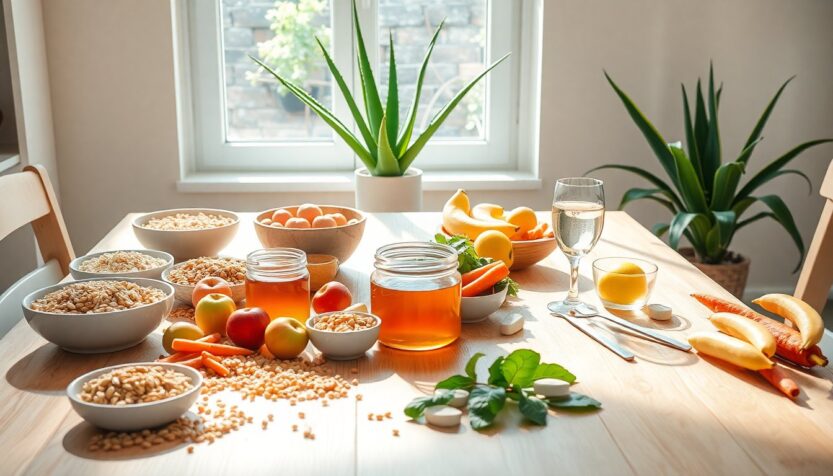Throughout my life, I have faced numerous challenges related to my gastrointestinal health. From childhood, anxiety often manifested itself in the form of persistent stomachaches. Coupled with my selective eating habits, this undoubtedly contributed to ongoing digestive issues.
As I transitioned into my college years and young adulthood, medical professionals diagnosed me with various gut-related conditions, including ulcers. Unfortunately, my situation became increasingly complex, as I found myself trapped in a vicious cycle of symptoms that severely impacted my social life and daily activities.
Seeking answers and finding a diagnosis
After numerous consultations and tests, my doctor suggested that I might be suffering from Irritable Bowel Syndrome (IBS). Following her advice, I adopted a FODMAP diet, which eliminated certain short-chain carbohydrates commonly found in foods like legumes, grains, and various vegetables. Though well-intentioned, the diet left me with limited options, leading to the gradual removal of numerous foods from my meals.
In retrospect, this restriction starved my gut of essential bacteria, disrupting the balance necessary for proper digestion and nutrient absorption. My condition continued to deteriorate, prompting me to seek further help from a gastroenterologist.
Understanding Small Intestine Bacterial Overgrowth (SIBO)
After extensive testing, I was diagnosed with Small Intestine Bacterial Overgrowth (SIBO), a condition where excessive bacteria grow in the small intestine. To combat this, I was prescribed a powerful antibiotic aimed at killing off the surplus bacteria, followed by a probiotic regimen to help restore my gut’s microbiome. This community of microorganisms plays a critical role in digesting food and converting it into nutrients.
Exploring dietary diversity for a healthier gut
Motivated to take charge of my health, I began researching ways to foster a robust gut microbiome. A pivotal moment came when I stumbled upon a talk by Dr. Sean Spencer, a physician-scientist specializing in gastroenterology at Stanford University. His insights were enlightening, particularly his emphasis on the importance of consuming a diverse range of plants.
Dr. Spencer encouraged individuals to aim for 30 different plant varieties each week, highlighting that diversity in one’s diet fosters a more resilient gut microbiome. He also suggested a daily fiber intake of at least 30 grams and the incorporation of pre- and probiotics sourced from fresh and fermented foods.
Implementing the 30 plants per week strategy
Initially, the prospect of integrating 30 plants into my weekly routine felt daunting. However, I soon realized that the term ‘plants’ encompasses much more than just fruits and vegetables. It includes an array of foods such as herbs, spices, grains, seeds, nuts, and even fermented products.
For instance, crafting a vibrant salad with a combination of leafy greens, tomatoes, carrots, and chickpeas can easily rack up a significant count of unique plant sources. The key to success lies in rotating the plants in your diet and keeping your pantry stocked with diverse ingredients, which is essential for both nutrition and enjoyment.
Practical tips for increasing fiber and plant diversity
When it comes to incorporating more fiber into your diet, it’s crucial to avoid overwhelming your digestive system. Gradually increasing fiber intake allows your body to adapt comfortably. Moreover, consider broadening your grain choices by exploring options like quinoa, farro, and barley.
Adding various nuts and seeds, such as almonds and pumpkin seeds, to salads or snacks can enhance your fiber intake while providing essential nutrients. Opting for long-rise sourdough bread, which undergoes an extended fermentation process, can also boost nutrient absorption.
Maintaining hydration and embracing fermented foods
Staying properly hydrated is vital for ensuring effective gastrointestinal motility. Be cautious with beverages high in sugar or caffeine, as they may hinder digestion. Additionally, incorporating fermented foods like kefir, kimchi, and sauerkraut into your meals can supply beneficial probiotics to support gut health.
To track your progress, consider maintaining a dietary journal to log your fiber intake and the variety of plants consumed. Over time, this practice will become second nature, and you’ll find it easier to adhere to these dietary changes.
Conclusion: A path to healing through mindful eating
Living with gastrointestinal challenges can be overwhelming, but by embracing a diverse and plant-rich diet, you can significantly improve your gut health. With patience, commitment, and a willingness to explore new foods, you can transform your well-being. Remember, managing stress through practices like meditation and spending time in nature can further enhance your digestive health.

